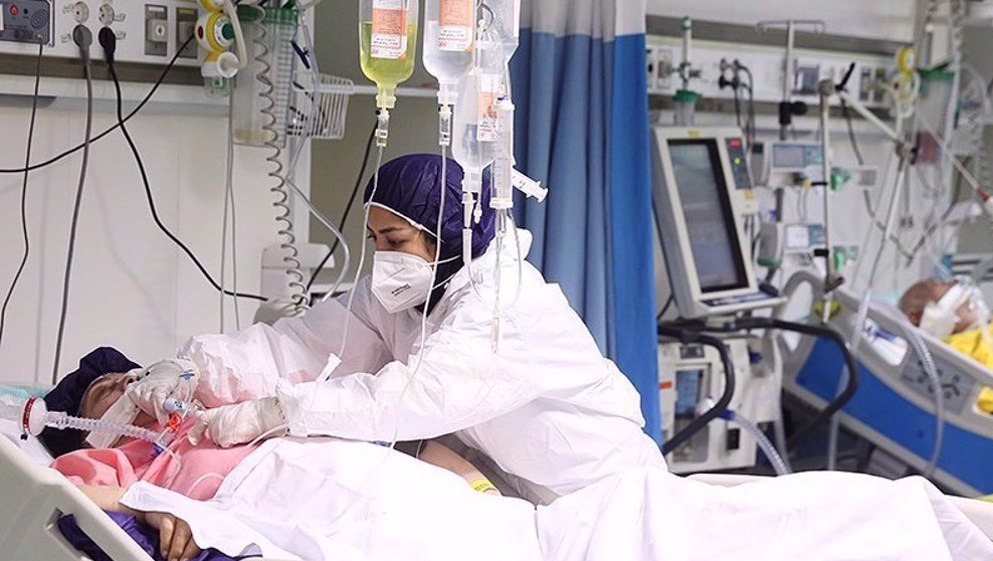
A nurse treats a COVID-19 patient at a hospital in Tehran, Iran, September 29, 2020. (Photo by Tasnim news agency)
United Nations, May 6 (RHC)-- An Iranian representative to the United Nations has warned that sanctions against developing countries target ordinary people and pose a serious obstacle to the fight against the deadly COVID-19 disease, calling on the world body to take swift action to help end the unlawful and illegitimate restrictions.
“The international community must take immediate and effective measures to eliminate any type of unilateral coercive measures, including illegal and illegitimate sanctions against developing countries,” Zahra Ershadi, the deputy permanent representative of Iran to the United Nations, said in an address to the sixth annual Multi-stakeholder Forum on Science, Technology and Innovation for the Sustainable Development Goals.
She said the restrictive measures hamper the fight against the coronvirus outbreak by targeting the health and lives of ordinary people. “Such unjustifiable and illegal measures are in contradiction to the United Nations Charter and the fundamental principles of international law, and prevent the realization of economic and social development in countries,” she added.
The Iranian representative emphasized that science and technology play an important role in the fight against the coronavirus pandemic and are among the most essential means available to achieve development and progress. Ershadi stressed the importance of building on the capabilities of developing countries and improving regional and international cooperation in the fields of science and technology.
“The transfer of technology and know-how without any discrimination and political consideration should turn into a priority,” she added. The Iranian diplomat noted that a lack of access to modern technologies would lead to serious problems in achieving development and filling the existing gaps in technological and digital fields.
It is necessary to support policies and activities of developing countries in science, technology and innovation by improving South-South, North-South and triangular cooperation in the areas of financial and technical assistance, capacity-building and transfer of technology, she said.
Ershadi called for fair and non-political allocation of Official Development Assistance (ODA) with the purpose of promoting the capabilities of developing countries in the fields science and technology.
“The right to development, including right to have access to modern technologies for developing countries, will not be realized in an environment in which multilateralism is under severe and increasing pressure,” she pointed out.

